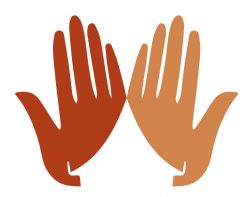There is a simple practise we can do. We can first give ourselves a simple little Mantra. “I am Andy, I am Andy..etc” over and over again. Do this for 5 minutes or so. Then, simply stop and sit. You will immediately notice a sense of peace and quiet and a sense of relief. Running through that mantra for 5 minutes is hard work. Also, you find that the mind starts pondering the questions that the mantra invokes. Sometimes, it becomes a question all of its own. I am Andy?
The other big thing we notice is that when we stop, we become aware of the present moment through our 5 senses. There is nothing else going on. We tune in to our bodies, to sounds etc and just sit.
This is very much the practise of the unborn self. The ego. When we are physically born, do you think the ego is born as well? Or does it get developed through our formative years. The age old question of nature versus nurture arises here. I certainly don’t think the entirety of the ego is present at physical birth, even if some element of it is present. I believe that we are pretty much a blank canvas. There will be some character traits that are genetic but the main bulk of our mental habits are laid down during our formative years. Hence the name, the formative years. Actually, it doesn’t matter at what age the term formative years applies to. It may be different for different people. But key here is that at our physical birth, in terms of ego, there isn’t much there. A new born is simply aware and soaking up their surrounding directly. They aren’t interpreting very much at all, because they have no experience to base their interpretation on. They are little Buddhas! Or are they? Well they have the capacity for pure awareness, that is certainly true, but they do not have the cognitive ability yet to direct themselves in the way an adult does.
As we’ve explored before and we will explore again soon in meditation, a key factor is the practise of compassion. At this stage in life, a baby will no doubt experience Metta when it gazes at its parents, but it won’t be able to focus it with intent in a given situation. Also, even awareness at this stage is the random open awareness (that we all have and use all the time) not the calm concentrated awareness of Samadhi. Dogs are like this too. They live in the moment, beaming up at their owners with compassion and driven by continuous distraction from the world around them. They do live in the moment, very much so. But they don’t have the ability to focus themselves the way we do.
So our challenge is to get back to that simplified state of the new born infant but with the ability bring a calm concentrated awareness to our experience and focussed and full compassion into our lives. This is why we meditate.
Something my father said to me when I was growing up. On a very rainy day, he said “don’t worry son, its dry between the raindrops” and we can use this very approach when we look at our minds. Thoughts are coming and going all the time but between them is pure mind, pure awareness. When we meditate, we can notice the space between the thoughts more that the thoughts themselves.
So, what do I mean by the unborn self? Put simply, it is the self that wasn’t born. The self that perpetuates through our lives, the self that we often falsely see as being somehow permanent and unchanging. It The self that we invest a huge amount of our energy in protecting. It is the self that causes us suffering when we mis-interpret someone’s comment as a slight against us and get all angry.
After-all. What is self? What is there about our experience off ourselves that says “Yes, this bit of me is permanent and runs right through my life”. When we investigate this, we discover that it certainly isn’t the body. This changes constantly through our lives. So most of us would consider our conscious mind. Our memories, life experiences, habits, prejudices, bias’s and even our character we see as being stored here. This is me. This is Andy. But is it? When we are mindful during our day, we can pay attention to our thoughts as they arise and ask ourselves, how many of them come from a place of protecting the ego? Also, we find through meditation that actually, these aspects of our mind we can watch interacting with each other. We see our mind drawing on our memories, being steered by our biases and beliefs. We spot the influence of mental habit. With meditation we learn the ability to step back from all of this and watch it happen in our minds. But if all of the stuff that we said was ‘me’ is now being observed, then who is observing. Who is watching. So we start to experience and understand that the ego is very much built rather than born. But as we progress through life we hold up this ego more and more and it becomes us. But it was never born. And because it was never born, it can never die.
When we practise in this way we start to realise something else. That not all thoughts come from this ego centric place. Some are driven by pure intelligence and awareness combined and when they arise seem to come out of nowhere, separate from us. These thoughts tend to be hugely beneficial to us and to other people and less likely to result in either our or somebody else’s suffering. They are skilful and wholesome.
I must just correct a common misconception. As a Buddhist, I do not believe having an ego is a bad thing! The ego is not evil! But in order for us to truly make spiritual practise we have to connect with the world exactly as it is and accept it the way it is and what stops us from doing that is the ego. So it gets in the way. This is why, thoughts driven by the ego tend to often produce suffering in some way shape or form, whereas thoughts driven from pure awareness tend to take us forward. They are driven by wisdom.
So, how can we investigate this in meditation? The best way is to just experience it and in my practise I have just sitting is perfect for this. When we practise with this, it starts to give us a sense of expansiveness. A little like walking in to a room and noticing the space between the objects, rather than the objects themselves. When we work with meditation, it is sometimes affected by the ego. We start to get frustrated when we can’t access that deep, relaxed place that we got to last night! That’s the ego talking. Just sitting, because of its nature, somehow seems less prone to this, which is why I have found it such a beneficial practise.

